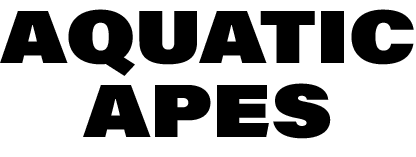Guide to picking the right Freediving Course & Agency
I wouldn't be surprised if you want to throw your laptop in the ocean while trying to work out what is going on with different Freediving courses and the agencies. I own a dive school and it still confuses me. Read below to help shed some light on this overly complicated topic of freediving agencies and certifications.
We made this comprehensive guide to help you choose which Freediving Agency and which Freediving Certification is right for you; whether this is your first time or you want to become an instructor. Spoiler alert — it doesn’t make a huge difference- I’ll explain below.
Whether you call it free-diving, apnea diving, or breath-hold diving. You can learn more about how it all works here.
I'm also pretty biased when it comes to this to be honest, I think the agency we offer is the best. That's why we have teamed up the crew at Freedive Adventures who understand the worldwide freediving market and have a non-biased, bird- eye view of the space and thus, can give good advice.
Read more below.
What is a Freediving Agency? Why have one?
Think of an Agency as the HQ of all things freediving — these guys set the rules, create the courses, and set standardized requirements for certifications. They're the brains behind the operation, while freediving schools and instructors are the hands and hearts bringing it all to life.
Agencies design courses for beginners to professionals, with some offering specialty courses in more niche areas of the sport.
Each Agency has partner centres and instructors around the globe — basically their local reps — and it’s through these centres that you can dive into one of their courses.
Agencies keep things safe and sound. Ensuring schools adhere to strict safety standards, aka aren’t going rogue. Before you get your fins wet, you'll usually need to fill out a health form (and if you’ve got a pre-existing condition, you might need a doctor’s thumbs-up too) — just to make sure your body’s ready for the magic of freediving.

Can you mix and match?
Let’s say you’re living your best life on holiday in Thailand and smash out your Level 1 freediving course with an amazing school your mate swore by. Fast forward — you’re back home in Australia, itching to level up with a new school... but it runs under a different agency. Can you still do your Level 2? Short answer: yep — most of the time!
Freediving agencies are kind of like school systems. They all teach similar curriculum, but the way they go about it — especially the theory or technical bits — can vary. So while jumping from one agency to another is totally doable, you might need to do a little crossover assessment and maybe pay a small fee to make sure everything lines up and, most importantly, stays safe.
BUT — and this is a big but — not every agency is internationally recognised. If you’ve done your Level 1 with a lesser-known or more local-only agency, other schools might not accept it. They could ask you to redo Level 1 before moving up. In order to avoid this plot twist, stick to the agencies listed below and if in doubt, ask!
Does it really matter?
Before we compare, let me rant about whether it really matters which agency you choose. In my opinion it makes little to no difference which agency you choose. Here's why:
- The differences between agencies are MINOR. You will see below It’s like splitting hairs noticing the differences.
- Most importantly, it’s the school and instructors that matter - not the agency. It’s the exact same as primary, aka elementary school. All schools teach the same syllabus but at the end of the day it's the school, teacher, facilities and people that make the difference to your child's life. Not the government department that decides what content they should learn. I have seen amazing instructors teaching EVERY single agency's materials. I have also seen every agency's material taught poorly.
- Therefore, do your research on the school and its instructors, not the agency. Look at reviews, speak to past students or read online forums as this is much more important than the agency they work under
Requirements for Freediving Courses
All freediving courses implement requirements to pass i.e. particular things you need to do to become a certified freediver. Some of these are absolutely necessary like knowing how to complete a freediving rescue but generally speaking, I despise requirements. Why do I hate requirements? Rant incoming.
- Requirements cause unnecessary stress on you as a diver- Arbitrary numbers that agencies have selected you need to reach to pass, take away from the learning experience. People often end up putting pressure on themselves to complete the requirements during the allotted time slot. This leads to feelings of failure when they are not reached- this is not what is important when learning to freedive. It is far more important that you learn all the important skills, improve your in-water confidence, dive safely and most importantly have fun. If you complete all these things but don't reach the number, then you have succeeded, not failed. I understand why they have to have numbers to pass, but it still grinds my gears.
- Furthermore, If you complete your freediving course but don't reach the number, then don't feel disheartened, you can always complete another training session to reach the number at a later date and get your certification. Usually, no repeat freediving courses are required.
Alright, enough ranting, let's compare courses and agencies below.
Compare Freediving Courses
Compare Freediving Agencies
Molchanovs
Molchanovs is named after and advanced by world-renowned freediver Natalia Molchanova and her 30+ world record holder son Alexey Molchanov. Full disclosure- we teach Molchanovs here at Aquatic Apes Freediving & Spearfishing, we think it's the best.
Pros:
- Includes no fins freediving in all courses
- Provides access to ‘Base Training’ after course completion- This is a freediving training program that you can join and complete as written by a professional freediving athlete.
- High quality materials including a student manual of over 200 pages.
- Make unreal freediving gear like custom fit monofins and bi-fins. To be fair, you can still buy these without doing a Molchanovs course however.
Cons:
- Online dashboard needs some work
Scuba Schools International
SSI is another prominent scuba agency that has expanded into Freediving. I taught SSI for a long time and think they are a great agency.
Pros:
- Elite student materials with access to many videos of aspects of freediving like the blackout rescue
- Provide great freediving gear in their sister company- Mares
- Easy to use SSI app that allows for dive logs, learning material access and much more
Cons:
- Lack of no fins freediving included in courses
AIDA
International Association for the Development of Apnea
Founded “by Freedivers, For Freedivers.
Pros:
- Widely available, huge freediving specific agency taught in 40+ Countries, with 4000+ Instructors and 180k+ Students
- AIDA certifications are widely recognized due to AIDA running high level freediving competitions where athletes can achieve world records.
Cons:
- Lack of no fins freediving included in courses
Other Notes:
- AIDA instructors can work independently without affiliation with a dive school. This allows for flexibility however, may result in lower standards without the accountability of a school. Once again, do your research on the instructor and school, not the agency.
Apnea Academy
Founded by Umberto Pelizzari, 16x depth world record holder.
Pros:
- This agency also certifies and holds a large number of competitions and thus records.
- Strong presence in Europe and in particular Italy-Umberto's home nation
Cons:
- Lack of no fins freediving included in courses
Freediving Instructors International
FII was established by 13x world record holder, Martin Stepanek
Pros:
- First and only freediving agency based in the USA
Cons:
- Lack of no fins freediving included in courses
PADI
PADI (Professional Association of Diving Instructors), one of the largest scuba diving agencies globally, also offers Freediving courses.
Pros:
- Widely available due to the huge array of PADI scuba centres. However, make sure you get in touch ahead of time as not all PADI scuba centres have a freediving instructor too.
Cons:
- Lack of no fins freediving included in courses
- Often believed that freediving is an afterthought in the agency due to their huge presence in SCUBA.
Dive RAID International
RAID teaches both Scuba Diving and Freediving
Pros:
- Digital theory approach. RAID offers the theory for its courses in a completely digital way before arriving at the dive school, this allows for more flexibility.
- Flexible approach. RAID instructors can design courses specifically for students making it ideal if you are in a time crunch.
Cons:
- Lack of no fins freediving included in courses
Other notes:
- Online freediving theory can be more flexible but may also result in a lack of freediver specific tailored education.
Final thoughts on Freediving Agencies
Ultimately, the choice of the Freediving Agency and course will depend on your individual preferences, where you are located and what school and instructor you think is best. Do your own research, check out reviews and choose a school that you think best fits you as a person.
If you have any more questions about the agency a school uses, just shoot them an email! It’s always a good way to start building rapport straight away. If you made it this far, just book a flight to Bali and dive with us. If you’re not in Bali, check out freediveadventures.com to find a freediving course or freediving trip somewhere else in the world.



